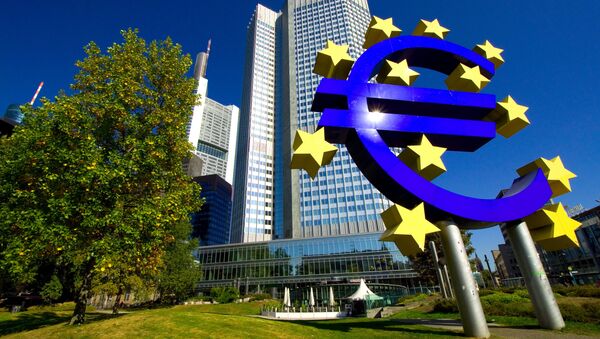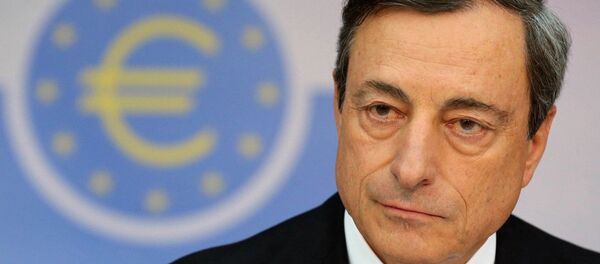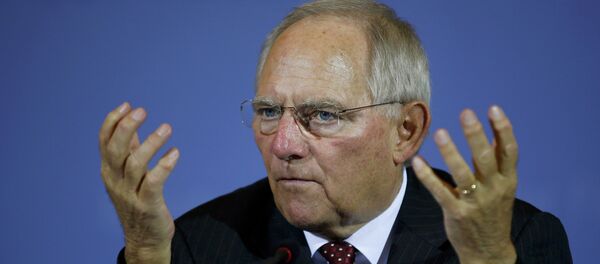MOSCOW, November 25 (Sputnik) — The European Central Bank (ECB) will not rush to implement monetary easing policies, as the regulator’s actions will depend on anticipated macroeconomic data, meaning investors hastened to downplay.
Benoit Coeure, market operations officer of the ECB Exec Board, attempted to cool investor skepticism for looming European asset depreciation, followed by a seemingly inevitable full-scale stimulus, saying that nothing has been decided upon, as the regulator is waiting to see economic data before making policy moves.
As suggested by Coeure, the ECB might still implement stimulus measures, however, yesterday's European asset selloff may have been premature. Yesterday yields on sovereign bonds in Spain and Italy plummeted to record lows. They came after a Nov., 21 comment by ECB head Mario Draghi who said the regulator will take necessary steps in order to accelerate inflation “as fast as possible”. The ECB staff is already working out possible measures, which most likely would include a bond buying program similar to America’s quantitative easing (QE).
However, the data, due on November 28, may eliminate the urgency of implementing stimulus if it shows inflation growing at a faster pace than at least 0.4%.
“We’re not committing to any particular time line,” said Coeure. “We’ll have a discussion in December, we’ll look at the numbers, we’ll look at how the economy is doing, and what we’ve been able to achieve on the ABS market, which has just started a couple of days ago, and on the covered bond markets. We’ll have that discussion, and if it’s not in December it will be later.”
The ECB monetary policies, include buybacks of covered bonds, accounting to $15.8 bln. The regulator is obviously moving toward expanding its total volume of assets to 3 trln euros. The ECB has most recently started to purchase asset-backed securities as well.
Yesterday’s report on the German economy has shown that business confidence has increased first time in the last six months. However, most forecasts are not optimistic, suggesting inflation of 0.3% in November as compared to 0.4% a month earlier while the Eurozone’s target inflation is about 2%.





